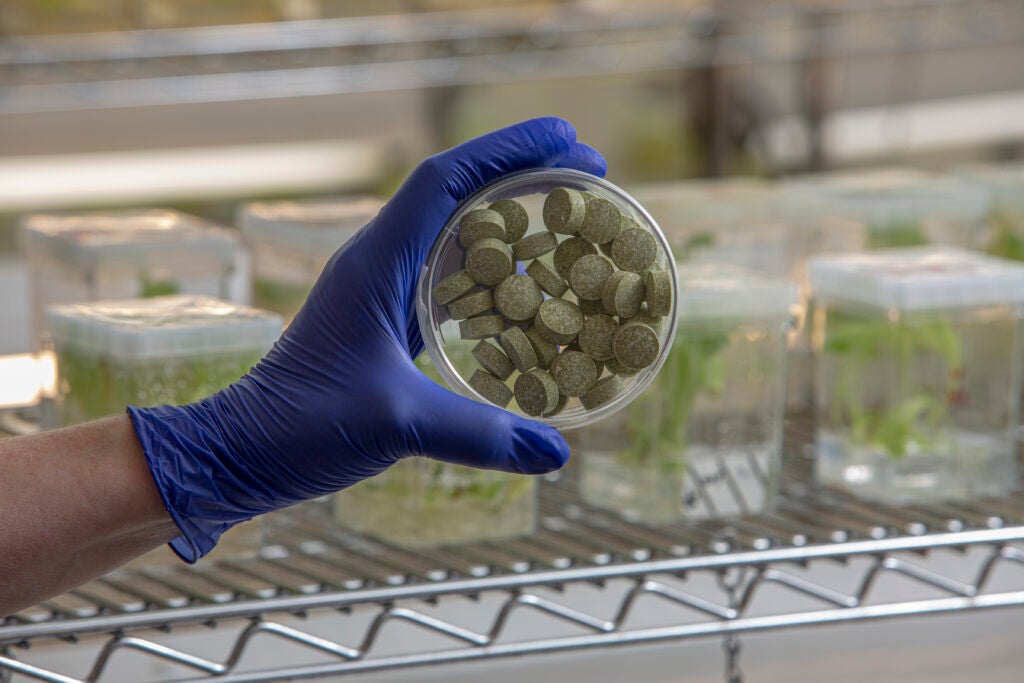Dr. Henry Daniell and a team of researchers at Penn’s School of Dental Medicine have been testing a medically crafted chewing gum that could trap SARS-CoV-2 in the saliva, potentially blocking transmission of COVID-19 from one person to another.
Now, a recently launched clinical trial at Penn Medicine will evaluate the safety and efficacy of this chewing gum. The trial will recruit participants from a pool of Penn Medicine employees whose responses to the PennOpen Pass screening system indicate that they may be infected with COVID-19. Those who enroll in the clinical trial will be given a packet of a dozen experimental tablets of the cinnamon-flavored gum to chew each morning.
“Each day participants will chew four tablets of gum, and take eight samples of saliva, before and after chewing,” says Daniell. “On the fourth day, they’ll come to the clinic, chew a final tablet of gum, and get an examination, record their symptoms, and submit their samples.”
The phase 1/2 trial will be used to ensure the gum is safe to use. Each of the participants’ saliva samples will undergo multiple PCR tests to quantify the level of virus present.
In effect, the gum is designed to trap and neutralize SARS-CoV-2 in the saliva and, ideally, diminish the amount of virus remaining in the mouth. The hope is that a reduced viral load would mean a lower likelihood of passing the infection on to others.
Daniell points out that the experimental chewing gum represents the first Investigational New Drug submission for a human therapeutic protein drug that doesn’t require a cold chain or protein purification. Eliminating the protein purification step reduces costs dramatically, and because the gum is shelf-stable, this potential treatment could more easily reach remote and less developed areas of the world without the need of refrigeration or special handling.
To one day reach this scale, Daniell has partnered with the Penn Center for Innovation to spin out this technology into a Penn startup company. Michael Poisel, who manages PCI Ventures, a division of PCI that works directly with researchers help form and launch new startups based on Penn technologies, says Daniell’s desire for broad and global accessibility has been a primary motivation behind the development of the gum and other products.
“One of the exciting things about the technology is the potential to help people in countries that don’t have the resources to benefit as broadly from the current vaccines and other therapies,” Poisel says. “Henry is really focused on making sure we can offer this in a cost-effective manner so the gum, once FDA approved, could be distributed as widely as possible and benefit as many people as possible.”
To learn more about the chewing gum technology, read the full Penn Today article here.
